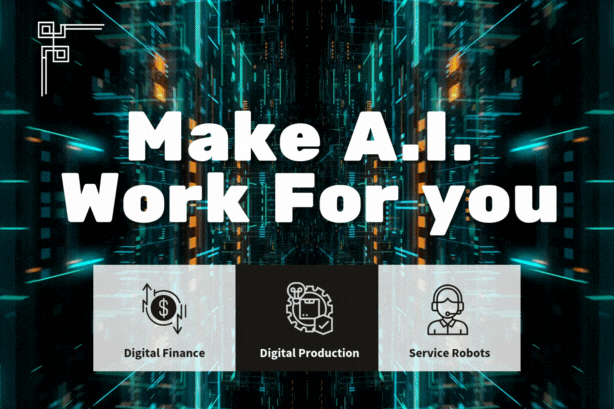
Artificial Intelligence (AI) has become an integral part of various industries, including leadership development. AI refers to the simulation of human intelligence processes by machines, especially computer systems. In the context of leadership development, AI can be used to identify potential leaders, personalize development programs, and enhance decision-making and problem-solving skills. As organizations strive to adapt to the rapidly changing business landscape, the role of AI in leadership development has become increasingly important.
AI has the potential to revolutionize the way organizations identify and develop leaders. By leveraging AI technologies, organizations can gain valuable insights into the leadership potential of their employees, enabling them to make more informed decisions about talent management and succession planning. Additionally, AI can be used to create personalized leadership development programs that cater to the specific needs and preferences of individual leaders. As AI continues to advance, its impact on leadership development is expected to grow, making it essential for organizations to understand and embrace the potential of AI in this context.
AI’s Role in Identifying Leadership Potential
AI has the capability to analyze vast amounts of data to identify individuals with the potential to become effective leaders. By utilizing machine learning algorithms, AI can assess various factors such as cognitive abilities, personality traits, and past performance to predict an individual’s leadership potential. This can help organizations identify high-potential employees who may have otherwise been overlooked, enabling them to nurture and develop these individuals into future leaders.
Furthermore, AI can help organizations identify emerging leaders within their workforce by analyzing patterns and trends in employee behavior and performance. By tracking key performance indicators and behavioral data, AI can provide insights into which employees are demonstrating the qualities and skills necessary for leadership roles. This allows organizations to proactively invest in the development of these individuals, ensuring a pipeline of capable leaders for the future. Overall, AI’s role in identifying leadership potential is crucial for organizations looking to build a strong leadership bench and drive long-term success.
Utilizing AI for Personalized Leadership Development Programs
One of the most significant advantages of AI in leadership development is its ability to create personalized development programs for individual leaders. Traditional leadership development programs often take a one-size-fits-all approach, which may not effectively address the unique needs and preferences of each leader. AI, on the other hand, can analyze an individual’s strengths, weaknesses, and learning style to tailor a development program that is specifically designed to help them reach their full potential as a leader.
AI can leverage data from various sources, such as performance reviews, assessments, and feedback, to create a comprehensive profile of each leader. This data can then be used to recommend specific learning opportunities, coaching sessions, and skill-building exercises that align with the leader’s developmental needs. By providing personalized development programs, organizations can ensure that their leaders receive targeted support that maximizes their growth and effectiveness. As AI continues to evolve, its ability to deliver personalized leadership development programs will only become more sophisticated, offering even greater value to organizations and their leaders.
AI’s Impact on Decision Making and Problem Solving in Leadership
| Metrics | Impact |
|---|---|
| Efficiency | AI can improve decision making and problem solving by analyzing large amounts of data quickly and accurately. |
| Accuracy | AI can reduce human error in decision making and problem solving by providing data-driven insights. |
| Innovation | AI can help leaders identify new opportunities and innovative solutions to complex problems. |
| Risk Management | AI can assist in identifying and mitigating potential risks in decision making processes. |
AI has the potential to significantly impact decision-making and problem-solving processes in leadership. By analyzing large volumes of data and identifying patterns and trends, AI can provide leaders with valuable insights that can inform their decision-making processes. This can help leaders make more informed and strategic decisions that are based on data-driven evidence rather than intuition or gut feeling.
Furthermore, AI can assist leaders in problem-solving by offering alternative solutions and scenarios based on predictive analytics. By simulating different outcomes and scenarios, AI can help leaders evaluate the potential impact of their decisions and identify the most effective course of action. This can lead to more effective problem-solving and decision-making processes that drive better outcomes for organizations.
However, it is important for leaders to recognize that while AI can provide valuable insights and recommendations, it should not replace human judgment entirely. Effective leadership requires a balance between leveraging AI-driven insights and exercising human judgment and intuition. By combining the strengths of AI with human decision-making capabilities, leaders can maximize their ability to make sound decisions and solve complex problems.
The Ethical Considerations of AI in Leadership Development
As organizations increasingly rely on AI for leadership development, it is essential to consider the ethical implications of using AI in this context. One of the primary ethical considerations is the potential for bias in AI algorithms used to assess leadership potential. If not carefully designed and monitored, AI algorithms may inadvertently perpetuate biases related to gender, race, or other demographic factors, leading to unfair assessments of leadership potential.
Additionally, there are concerns about privacy and data security when using AI in leadership development. Organizations must ensure that they are transparent about how they collect and use data for leadership development purposes and take measures to protect the privacy and confidentiality of their employees’ information.
Furthermore, there is a need to consider the impact of AI on job displacement and workforce dynamics. As AI technologies continue to advance, there is a possibility that certain leadership development tasks may be automated, potentially leading to job displacement for some employees. Organizations must consider how they will manage these changes ethically and ensure that they support their employees through any transitions that may arise.
Overall, ethical considerations are paramount when integrating AI into leadership development initiatives. Organizations must prioritize fairness, transparency, privacy, and accountability to ensure that they are using AI in a responsible and ethical manner.
Overcoming Resistance to AI in Leadership Development
Despite the potential benefits of AI in leadership development, there may be resistance from some leaders and employees who are hesitant to embrace AI technologies. This resistance may stem from concerns about job displacement, fear of change, or skepticism about the effectiveness of AI in assessing leadership potential and delivering personalized development programs.
To overcome resistance to AI in leadership development, organizations must focus on education and communication. Leaders should be transparent about the purpose and benefits of using AI in leadership development and address any concerns or misconceptions that employees may have. Providing training and support for employees to understand how AI is being used in leadership development can also help alleviate resistance.
Additionally, organizations should involve employees in the process of implementing AI in leadership development by seeking their input and feedback. By involving employees in decision-making processes related to AI technologies, organizations can foster a sense of ownership and collaboration that can help mitigate resistance.
It is also important for organizations to demonstrate the value of AI in leadership development through tangible results and success stories. By showcasing how AI has helped identify and develop effective leaders within the organization, leaders and employees may become more open to embracing AI as a valuable tool for leadership development.
The Future of AI in Leadership Development
The future of AI in leadership development holds great promise for organizations seeking to build strong leadership pipelines and drive long-term success. As AI technologies continue to advance, they will become even more sophisticated in identifying leadership potential, delivering personalized development programs, and enhancing decision-making and problem-solving processes.
In the future, we can expect AI to play an even larger role in talent management and succession planning by providing real-time insights into emerging leaders within an organization. This will enable organizations to proactively invest in developing these individuals, ensuring a steady supply of capable leaders for the future.
Furthermore, as AI continues to evolve, it will likely become more integrated with other technologies such as virtual reality (VR) and augmented reality (AR) to create immersive learning experiences for leaders. These technologies can provide leaders with realistic simulations of complex leadership scenarios, allowing them to practice decision-making and problem-solving in a safe yet realistic environment.
Overall, the future of AI in leadership development is bright, offering organizations new opportunities to identify and develop effective leaders who can navigate the complexities of the modern business landscape. By embracing the potential of AI in leadership development, organizations can position themselves for long-term success and competitive advantage in an ever-evolving global marketplace.
FAQs
What is AI?
AI, or artificial intelligence, refers to the simulation of human intelligence in machines that are programmed to think and act like humans. This includes tasks such as learning, problem-solving, and decision-making.
How is AI impacting leadership development?
AI is impacting leadership development by providing new tools and technologies for leaders to enhance their skills and decision-making processes. It can help leaders analyze data, identify patterns, and make more informed decisions.
What are some examples of AI in leadership development?
Examples of AI in leadership development include AI-powered coaching and mentoring platforms, predictive analytics for talent management, and AI-driven assessments for leadership potential.
What are the potential benefits of AI in leadership development?
The potential benefits of AI in leadership development include improved decision-making, personalized learning experiences, enhanced performance evaluations, and the ability to identify and develop future leaders more effectively.
Are there any potential drawbacks to using AI in leadership development?
Some potential drawbacks of using AI in leadership development include concerns about privacy and data security, the risk of bias in AI algorithms, and the potential for over-reliance on technology at the expense of human intuition and empathy.


